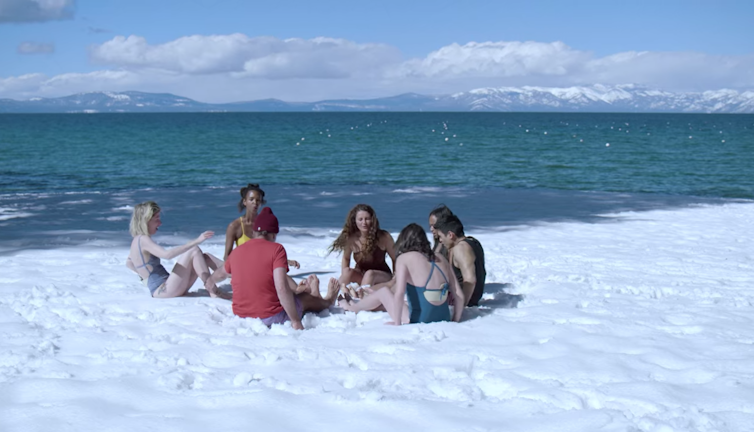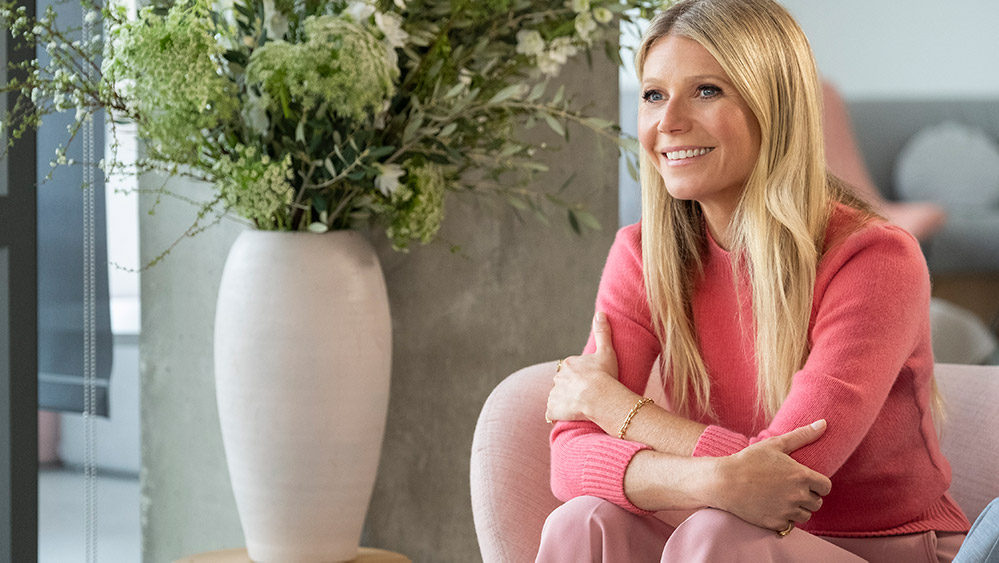January 29, 2020
Marketing, not medicine: Gwyneth Paltrow’s The Goop Lab whitewashes traditional health therapies for profit
Netflix’s new show fails to critically explore the alternative therapies it promotes.
In Gwyneth Paltrow’s new Netflix series, The Goop Lab, Paltrow explores a variety of wellness management approaches, from “energy healing” to psychedelic psychotherapy.
Goop has long been criticised for making unsubstantiated health claims and advancing pseudoscience, but the brand is incredibly popular. It was valued at over US$250 million (A$370 million) in 2019.
The alternative health industry is worth A$4.1 billion in Australia alone – and projected to grow.
A key driver of the industry is increased health consciousness. With easier access to information, better health literacy, and open minds, consumers are increasingly seeking alternatives to managing their well-being.
Goop has capitalised on the rise in popularity of alternative health therapies – treatments not commonly practised under mainstream Western medicine.
Health systems in countries such as Australia are based on Western medicine, eschewing traditional and indigenous practices. These Western systems operate on measurable and objective indicators of health and well-being, ignoring the fact subjective assessments – such as job satisfaction and life contentment – are just as important in evaluating quality of life.
This gap between objective measures and subjective assessments creates a gap in the marketplace brands can capitalise on – not always for the benefit of the consumer.
The Goop Lab fails to engage with the cultural heritage of traditional health and well-being practices in any meaningful way, missing an important opportunity to forward the holistic health cause.
Read more: Gwyneth Paltrow's new Goop Lab is an infomercial for her pseudoscience business
The uncritical manner in which these therapies are presented, failure to attribute their traditional origins, absence of fact-checking, and lack of balanced representation of the arguments for and against these therapies only serve to set back the wellness cause.
New to the West, not new to the world
Many of the historical and cultural origins of the therapies in The Goop Lab are not investigated, effectively whitewashing them.
The first episode, The Healing Trip, explores psychedelic psychotherapy, suggesting this is a new and novel approach to managing mental health.
In reality, psychedelics have been used in non-Western cultures for thousands of years, only recently enjoying a re-emergence in the Western world.
In the second episode, Cold Comfort, the “Wim Hof Method” (breathing techniques and cold therapy) is also marketed as a novel therapy.

The meditation component of Hof’s method ignores its Hindu origins, documented in the Vedas from around 1500 BCE. The breathing component closely resembles prāṇāyāma, a yogic breathing practice. The “Hof dance” looks a lot like tai chi, an ancient Chinese movement practice.
Whitewashing these alternative therapies represents a form of colonisation and commodification of non-Western practices that have existed for centuries.
The experts showcased are usually white and from Western cultures, rather than people of the cultures and ethnicities practising these therapies as part of their centuries-old traditions.
Rather than accessing these therapies from authentic, original sources, often the consumer’s only option is to turn to Western purveyors. Like Paltrow, these purveyors are business people capitalising on consumers’ desire and pursuit of wellness.
Only the rich?
Paltrow describes Goop as a resource to help people “optimise the self”. But many of these therapies are economically inaccessible.
In The Health-Span Plan, Paltrow undergoes the five-day “Fast Mimicking Diet” by ProLon – a diet designed to reap the health benefits of fasting while extremely restricting calories. The food for the treatment period costs US$249 (A$368) (but shipping is free!). The average Australian household spends just over A$250 on groceries weekly.
Paltrow also undergoes a “vampire facial”, where platelet-rich plasma extracted from your own blood is applied to your skin. This facial is available at one Sydney skin clinic for between A$550 and A$1,499.

These therapies commodify wellness – and health – as a luxury product, implying only the wealthy deserve to live well, and longer.
This sits in stark odds with the goals of the World Health Organisation, which views health as a fundamental human right “without distinction of race, religion, political belief, economic, or social condition”.
A right to live well
Companies like Goop have a responsibility to explain the science and the origins of the methods they explore.
Given their profit-driven motive, many absolve themselves of this responsibility with an easy disclaimer their content is intended to “entertain and inform – not provide medical advice”. This pushes the burden of critically researching these therapies onto the consumer.
Governments should seek to fund public health systems, such as Medicare, to integrate traditional health practices from other cultures through consultation and working in collaboration with those cultures.
Read more: Traditional medicines must be integrated into health care for culturally diverse groups
Perhaps this will give everyone access to a wellness system to help us live well, longer. This way, citizens are less likely to be driven towards opportunists such as Goop seeking to capitalise on our fundamental human right to live well.
Nadia Zainuddin, Senior Lecturer, University of Wollongong
This article is republished from The Conversation under a Creative Commons license. Read the original article.
UOW academics exercise academic freedom by providing expert commentary, opinion and analysis on a range of ongoing social issues and current affairs. This expert commentary reflects the views of those individual academics and does not necessarily reflect the views or policy positions of the University of Wollongong.
